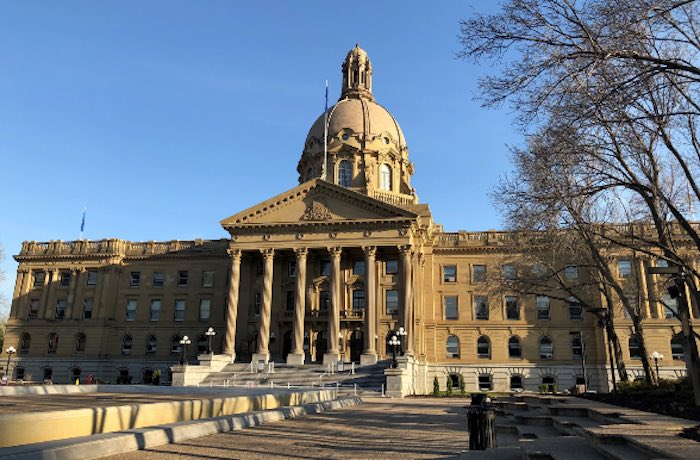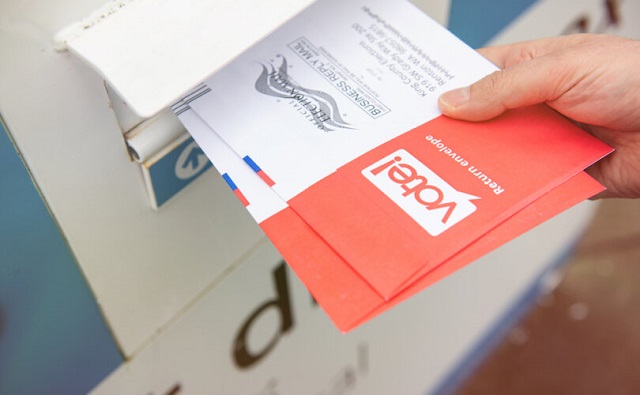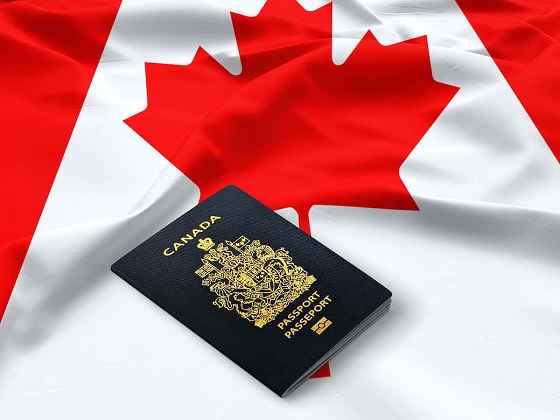Alberta
Alberta fighting federal “unconstitutional intrusion” into provincial jurisdiction

Alberta to fight federal plastics ban once more
Alberta’s government will continue defending the province’s constitutional jurisdiction and economy by intervening in Ottawa’s appeal of the Federal Court’s ruling on plastics.
On Nov. 16, the Federal Court of Canada ruled that the federal order-in-council classifying plastics as toxic is not only unreasonable but unconstitutional. The federal government has chosen to appeal this decision, ignoring calls from Alberta and others to accept the court’s decision.
As a result, Alberta’s government will participate in the appeal and will argue that the federal government’s decision to label plastic as a “toxic substance” is an unconstitutional intrusion into provincial jurisdiction.
“It is past time for Ottawa to listen. We have told them they are overreaching their jurisdiction, the private sector has told them so, and so have both the Supreme Court and the Federal Court. Ottawa cannot assume regulatory authority over any substance simply by designating it as toxic. We will continue to push back against Ottawa’s unconstitutional actions, including through this legal action, until they listen.”
The toxic designation and bans have also had a detrimental impact on Alberta’s economy. Alberta’s Industrial Heartland Association estimates the designation will potentially jeopardize more than $30 billion in capital investment in the petrochemical sector by 2030. Those risks would also put Albertan and Canadian workers at risk of losing their jobs.
“The Federal Court clearly ruled that the federal government’s plastics ban policies were unconstitutional. The federal government’s environmental policies and constitutional overreach have been heavily criticized and this ruling further confirms the indisputable nature of provincial jurisdiction in these matters. We are intervening in this appeal and will continue to participate wherever and whenever necessary to protect Alberta’s interests.”
In addition to intervening in the appeal, Alberta will monitor any further legal action taken to remove plastic manufactured items from the current Schedule 1 of the Canadian Environmental Protection Act. Several Calgary-based companies producing compostable plastic bags are now caught in the ban and will be barred from supplying Calgarians with low-emissions alternatives to traditional plastic shopping bags.
“Instead of listening to the courts and to Canadians, the federal government has chosen overreach once again. We will continue standing up for our constitutional jurisdiction while focusing on more effective ways to reduce plastic waste and keep it out of landfills.”
Alberta is committed to reducing plastic waste through initiatives like extended producer responsibility, which encourages businesses to find new ways to recycle materials and reduce waste. The province also advocates for strategies that create economies of scale, promote recycled content and develop local markets for transformed plastic waste.
Quick facts
- On April 23, 2021, the administrator in council issued an order-in-council directing that “plastic manufactured items” be added to Schedule 1 of the Canadian Environmental Protection Act, 1999 (CEPA).
- The category of plastic manufactured items includes every piece of plastic that enters Alberta.
- Once a substance is designated as toxic under CEPA, CEPA allows the federal government to make regulations regulating every aspect of that substance’s life, from manufacture to sale to use and to disposal.
- Canada subsequently enacted the Single-use Plastics Prohibition Regulations (SUPPR) prohibiting the manufacture, import and sale of six single-use plastics. SUPPR is only valid if “plastic manufactured items” is listed as toxic on Schedule 1 of CEPA.
- The Responsible Plastic Use Coalition, Dow, Imperial Oil and Nova applied for a judicial review of the order. They challenged it as unreasonable on administrative law grounds and as unconstitutional on division of powers grounds.
- On Sept. 7, 2022, Alberta intervened in the application to address the constitutional questions. Saskatchewan intervened on Oct. 24, 2022.
- The application was heard March 7-9, 2023, and the court reserved its decision.
- On Nov. 16, the federal Court of Canada issued its decision. Justice Angela Furlanetto concluded that the order adding “plastic manufactured items” to the Schedule 1 was both unreasonable from an administrative law perspective, and unconstitutional.
Alberta
Former senior financial advisor charged with embezzling millions from Red Deer area residents

News release from Alberta RCMP
Former senior financial advisor charged for misappropriating nearly $5 million from clients
On April 4, 2024, the RCMP’s Provincial Financial Crime Team charged a Calgary resident for fraud-related offences after embezzling millions of dollars from his clients while serving as a senior financial advisor.
Following a thorough investigation, the accused is alleged to have fraudulently withdrawn funds from client accounts and deposited them into bank accounts he personally controlled. A total of sixteen victims were identified in the Red Deer area and suffered a combined loss of nearly $5 million.
Marc St. Pierre, 52, a resident of Calgary, was arrested and charged with:
- Fraud over $5,000 contrary to section 380(1)(a) of the Criminal Code; and,
- Theft over $5,000 contrary to section 344(a) of the Criminal Code.
St. Pierre is scheduled to appear in Red Deer Provincial Court on May 14, 2024.
“The ability for financial advisors to leverage their position to conduct frauds and investment scams represents a significant risk to the integrity of Alberta’s financial institutions. The investigation serves as an important reminder for all banking clients to regularly check their accounts for any suspicious activity and to report it to their bank’s fraud prevention team.”
- Sgt. John Lamming, Provincial Financial Crime Team
The Provincial Financial Crime Team is a specialized unit that conducts investigations relating to multi-jurisdictional serious fraud, investments scams and corruption.
Alberta
Political parties will be part of municipal elections in Edmonton and Calgary pilot projects

Strengthening Alberta’s local elections
Alberta’s government is introducing legislation to ensure Albertans can rely on transparent, free and fair elections, and municipally-elected officials have clearer accountability measures.
In a democratic society, Albertans expect their local elections to be free and fair, and their elected officials to be held to account by clear rules that govern their local councils. The Municipal Affairs Statutes Amendment Act proposes amendments to the Local Authorities Election Act (LAEA) and the Municipal Government Act (MGA) to add greater transparency to local election processes and ensure local councils and elected officials continue to remain accountable to the citizens who elected them.
“Our government is committed to strengthening Albertans’ trust in their local governments and the democratic process that elects local leaders. The changes we are making increase transparency for Alberta voters and provide surety their votes will be counted accurately. We know how important local democracy is to Albertans, and we will work with local authorities to protect and enhance the integrity of local elections.”
Local Authorities Election Act
Albertans expect free and fair elections and that’s why it’s important we strengthen the rules that govern local elections. To strengthen public trust in local elections, Alberta’s government will eliminate the use of electronic tabulators and other automated voting machines. All Albertans should be able to trust the methods and results of local elections; requiring all ballots to be counted by hand, clarifying rules and streamlining processes for scrutineers will provide voters greater assurance in the integrity of the results.
All eligible Albertans should be able to vote in local elections without impediment. Alberta’s government will limit the barriers for eligible voters to cast a ballot by expanding the use of special ballots. Currently, special ballots can only be requested for very specific reasons, including physical disability, absence from the municipality, or for municipal election workers. By expanding the use of special ballots, the government is encouraging more voter participation.
Amendments in the Municipal Affairs Statutes Amendment Act would increase transparency in local elections by enabling political parties at the local level. Political parties would be enabled in a pilot project for Edmonton and Calgary. The act will not require candidates to join a political party in order to run for a local or municipal office, but will create the opportunity to do so.
In addition, proposed changes to the Local Authorities Election Act would allow municipalities the option to require criminal record checks for local candidates, thus increasing transparency and trust in candidates who may go on to become elected officials.
Municipal Government Act
The role of an elected official is one with tremendous responsibility and expectations. Changes proposed to the Municipal Government Act (MGA) will strengthen the accountability of locally elected officials and councils. These include requiring mandatory orientation training for councillors, allowing elected officials to recuse themselves for real or perceived conflicts of interest without third-party review and requiring a councillor’s seat to become vacant upon disqualification.
If passed, the Municipal Affairs Statutes Amendment Act will also unlock new tools to build affordable and attainable housing across Alberta. Proposed amendments under the MGA would also create more options for municipalities to accelerate housing developments in their communities. Options include:
- Exempting non-profit, subsidized affordable housing from both municipal and education property taxes;
- Requiring municipalities to offer digital participation for public hearings about planning and development, and restricting municipalities from holding extra public hearings that are not already required by legislation; and
- Enabling municipalities to offer multi-year residential property tax exemptions.
Municipal Affairs will engage municipalities and other partners over the coming months to hear perspectives and gather feedback to help develop regulations.
Quick facts
- The LAEA establishes the framework for the conduct of elections in Alberta municipalities, school divisions, irrigation districts and Metis Settlements.
- The MGA establishes the rules governing the conduct of local elected officials once on council, as well as the overall administration and operation of municipal authorities in Alberta, including any policy those authorities may wish to implement.
Related information
-

 Automotive23 hours ago
Automotive23 hours agoThe EV ‘Bloodbath’ Arrives Early
-

 CBDC Central Bank Digital Currency14 hours ago
CBDC Central Bank Digital Currency14 hours agoA Fed-Controlled Digital Dollar Could Mean The End Of Freedom
-

 Addictions2 days ago
Addictions2 days agoWhy can’t we just say no?
-

 Business1 day ago
Business1 day agoHonda deal latest episode of corporate welfare in Ontario
-

 espionage1 day ago
espionage1 day agoOne in five mail-in voters admitted to committing voter fraud during 2020 election: Rasmussen poll
-

 Brownstone Institute13 hours ago
Brownstone Institute13 hours agoThe Numbers Favour Our Side
-

 Frontier Centre for Public Policy9 hours ago
Frontier Centre for Public Policy9 hours agoHow much do today’s immigrants help Canada?






